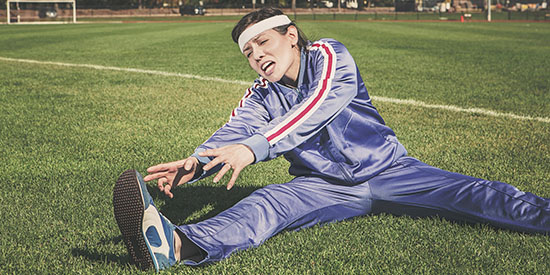Marathon resolutions? Find a 2017 fitness goal that goes the distance
Media releaseWith another January 1 just behind us, the usual round of 'new year, new me' fitness goals are kicking into action, but Deakin University sport scientist Dr Eric Drinkwater reckons he has some winning tips to make 2017's resolutions last the distance.
Dr Drinkwater says the first rule is to stop moving and start planning it.
"Being inspired is the hardest part of taking up exercise or a sport, however there is more to getting the most from exercise than motivation," Dr Drinkwater said.
"For example, there is more to running than simply putting on a pair of runners and hitting the footpath. There is a technique to running that, if done properly, helps the body to get the most of the exercise and helps prevent injury."
Dr Drinkwater recommends people follow the tips below to ensure their first attempts to exercise in the New Year are not their last:
- Talk to a fitness professional: Just because you think 'I'm going to run 5km today' doesn’t mean you can or should. Paying for a couple of weeks with a fitness professional will be money well spent and enough time to learn the right techniques which will prevent injury and help ensure you get the best results from your efforts. The costs can even be covered by Medicare if you ask your doctor about a referral to an "accredited exercise physiologist";
- Be social: Not only will you be more motivated to exercise if you do it with a friend, joining social groups such as the local running club can also help with mastering the right techniques;
- Choose activities that you enjoy: People often ask 'what is the best exercise'? The answer is, the best exercise is what you enjoy and are prepared to do. You are more likely to stick with something you enjoy, rather than an exercise that seems more like punishment;
- Keep it convenient: Look for activities close to home or close to work so getting there is not a major chore;
- Set goals, keep track: Keeping track, particularly through activity trackers, gives built in recognition of hitting goals that will give you great satisfaction and motivation. Even the smallest reward is great for motivation and encourages people to chase their goals; and
- Go easy: If you push yourself too hard you can not only cause an injury but end up feeling sore and sorry for yourself a couple of days later. Feeling like you have been punished for your efforts can be demotivating and turn you off exercising again. Remember that exercise is a life-time investment, so take your time.
Dr Drinkwater is a senior lecturer at Deakin's School of Exercise and Nutrition Sciences, recently ranked number one in the world by the prestigious Academic Ranking of World Universities (ARWU) for sports science.

